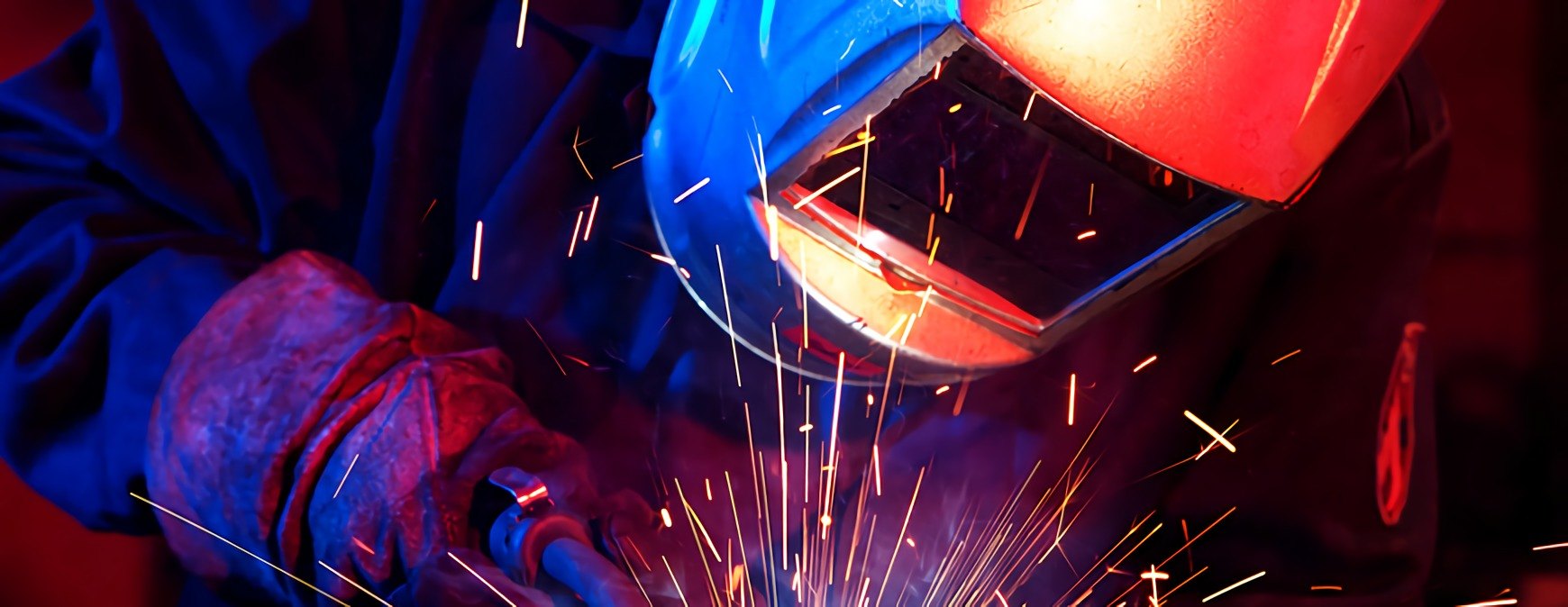RSI is a Great Training Option for Everyone
Learn more about how we can prepare you to advance your career.
The American Welding Society predicts that the U.S. will need more than 400,000 welders by the year 2025[1] for one simple reason: The work of welders plays a huge role in creating more than half of the country’s products, from cars to computers to cell phones. [2]
If you want to fill one of these jobs, you need the right skills and the training. It’s hard work, but the payoff is a job that can last you a lifetime.
Can Anyone Become a Welder?
Yes! Anyone can in fact become a welder. But like with any other trade, pursuing a welding career is a lot more enjoyable and realistic when your interests align with the responsibilities and day-to-day operations of a welder.
The Ideal Preferences of a Welder
Active Work
Operating welding equipment is active work.[3] It requires welders to stand, stoop and bend their bodies. They also lift objects a lot.
Their work may take them outdoors to different job sites, such as on the ground doing repair and maintenance or high up in the air on the scaffolding of a skyscraper.[4]
Get Started on the Path to a New Career
Fill out our form to learn how we can help you change your life.
If you hate sitting behind a desk in an office all day, you won’t have to worry about that as a welder.
Flexible Schedule
Welders who visit different jobs sites or travel for their trade may not work the standard 9-to-5, 8-hour day like many office and customer service employees do. Many welders, in fact, have more flexible schedules.
Does the idea of working the same 8 hours every day put you to sleep? The schedule of a welder keeps the monotony at bay.
Traveling
Welding provides the opportunity to see the world while you work. In fact, the most lucrative kinds of welding jobs usually require workers to travel to other destinations to perform job tasks.
Here are some examples of welding jobs that involve travel:[5]
- Maintaining and repairing ships
- Working on pipelines
- Fusing metals deep under the sea
Metallurgy
What is metallurgy? It’s the science and technology of metals. [6]
Does the thought of working with metals on a daily basis excite you? Welders work with them all the time.
Qualities
The Bureau of Labor (BLS) statistics indicates that certain qualities are important for a welder to have.
Attention to Detail
Preventing deflects or flaws that could compromise the quality of the weld really comes down to one thing: attention to detail.
For welded structures like cars and bridges, producing sound welds is a matter of public safety. From prepping the metals to be welded, to inspecting the finished product, to maintaining a clean workspace, welders have to pay close attention to avoid costly mistakes on the job.[7]
Physical Strength and Stamina
As mentioned before, welding is an active job. Welders need to be in good shape to lift and move metal and equipment for extended periods of time.
Manual Agility and Visual Precision
Welders often hold torches and electrodes to melt the metals being joined. These are tools that require extra care and focus to operate competently.
A steady hand and good hand-eye coordination are the keys to maneuvering these tools to produce quality products and avoid work-related hazards.
Dimensional Comprehension
Interpreting multi-dimensional diagrams, such as blueprints, requires strong spatial orientation.[8]
How Do I Become a Professional Welder?
Welding is a hobby for some people, but if you would like to fuse metals professionally, formal training can help you turn it into a career.
The BLS states that becoming a welder typically requires three qualifications:
- A GED or high school diploma
- Vocational training
- On-the-job training
Some welding jobs require that a welder have a general or specialized certification.
Professional Welder Qualifications
High School
Students in high school can start preparing for a career in welding by taking classes in shop math, chemistry and physics.
Vocational School
Welding schools often offer programs with courses in blueprint reading, mechanical drawing and basic metallurgy.
Students in formal welding training also typically receive instruction in fundamental welding processes such as these:
- Shielded metal arc welding (SMAW)
- Gas metal arc welding (GMAW)
- Tungsten inset gas welding (TIG)
Learn more about these types of welding.
Employer Training
The type of training a welder receives from an employer depends on the nature of the job.
For example, an entry-level structural welder hired to work on the construction of skyscrapers might receive more training in SMAW, while an entry-level pipe welder would practice GMAW more.[9]
Welding Certification
Organizations within the welding industry offer generalized and specialized certifications.
The American Welding Society provides a Certified Welder program for individuals in procedures employed by the chemical refinery, petroleum pipeline, structural steel and sheet metal industries. This would be considered a more generalized certification for welders to validate their skills for positions in some of the main welding industries.[10]
The AWS also offers specialized certifications, such as its Certified Welding Inspector program. [11][12]
Why Become a Welder
Welding is a dynamic industry that is responsible for many of the products and structures Americans rely on everyday. Welders play a vital rule in the manufacture of goods and the construction of the country’s infrastructure.
Want to contribute to society, make great pay, work a flexible schedule and travel while you do it? Welding is the career for you. Contact us to learn more about what it takes to become a welder.
Additional Sources
[1] https://www.aws.org/foundation/page/workforce-development
[2] http://www.careersinwelding.com/welding_fun_facts.php
[3] https://www.bls.gov/ooh/production/welders-cutters-solderers-and-brazers.htm#tab-2
[4] https://www.bls.gov/ooh/production/welders-cutters-solderers-and-brazers.htm#tab-3
[5] https://www.gowelding.org/articles/facts-about-career-welding/
[6] https://www.merriam-webster.com/dictionary/metallurgy
[7] https://www.thebalance.com/welder-skills-list-2062500
[8] https://www.bls.gov/ooh/production/welders-cutters-solderers-and-brazers.htm#tab-4
[9] https://www.rsi.edu/programs/welding-specialist/
[10] https://www.aws.org/certification/page/certified-welder-program
[11] https://www.aws.org/certification/detail/certified-welding-inspector
[12] https://www.bls.gov/ooh/production/welders-cutters-solderers-and-brazers.htm#tab-4
This blog has been labeled as archived as it may no longer contain the most up-to-date data. For a list of all current blog posts, please visit our blog homepage at https://www.rsi.edu/blog/




